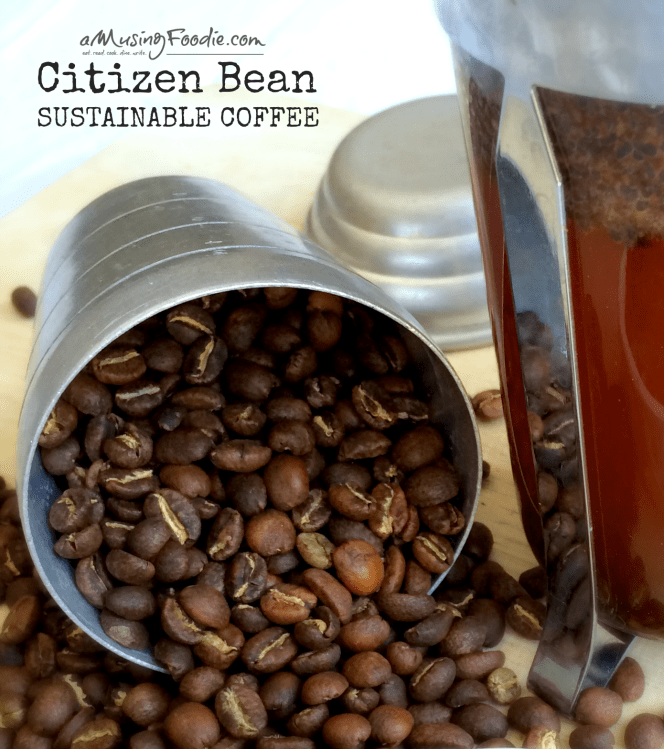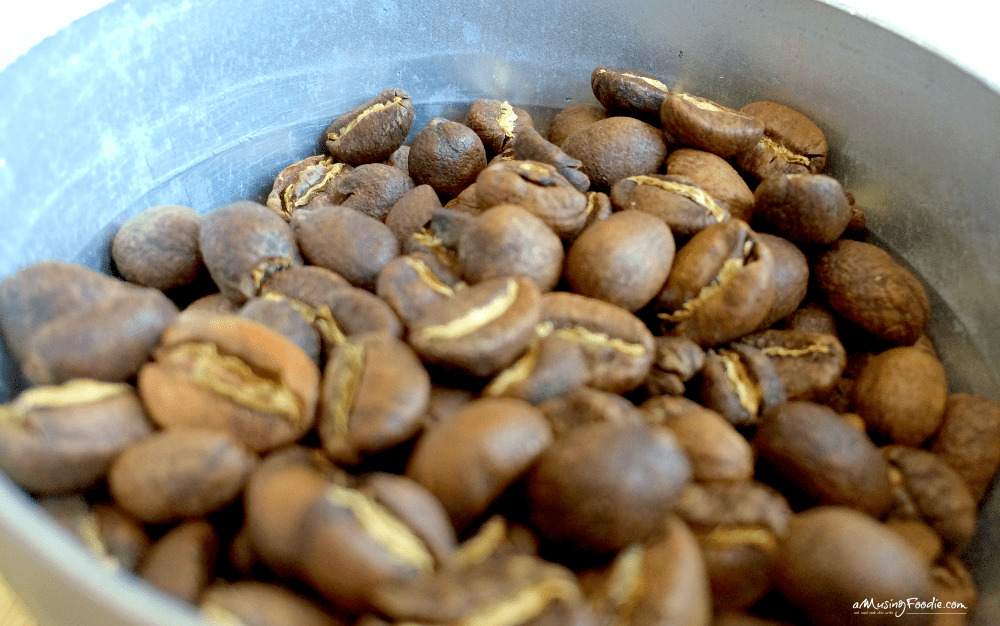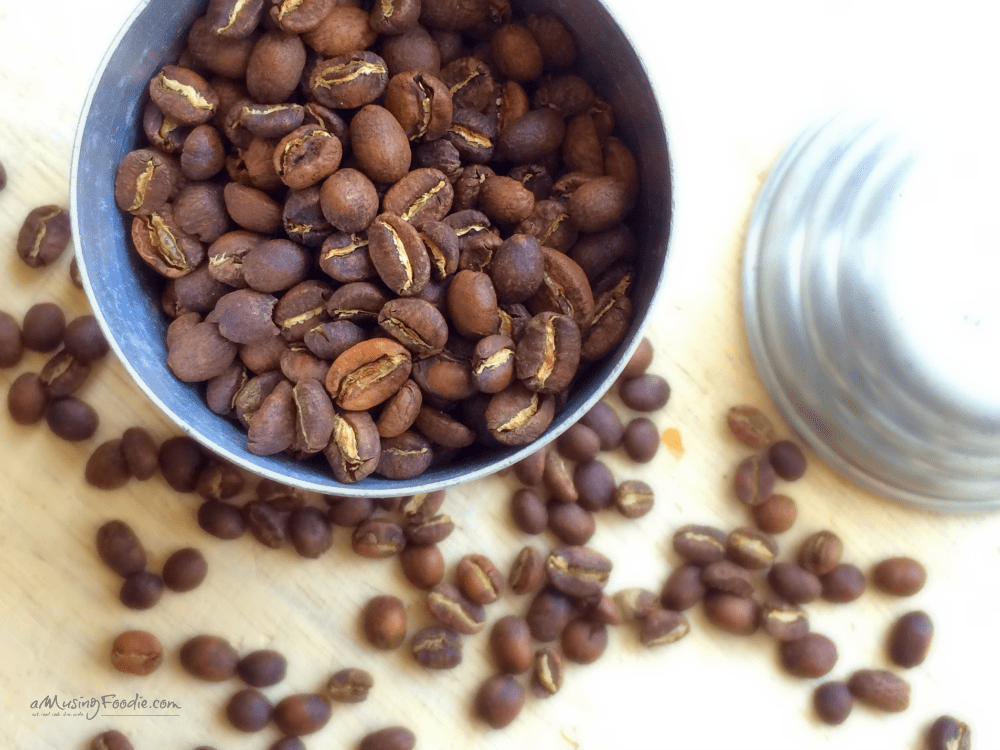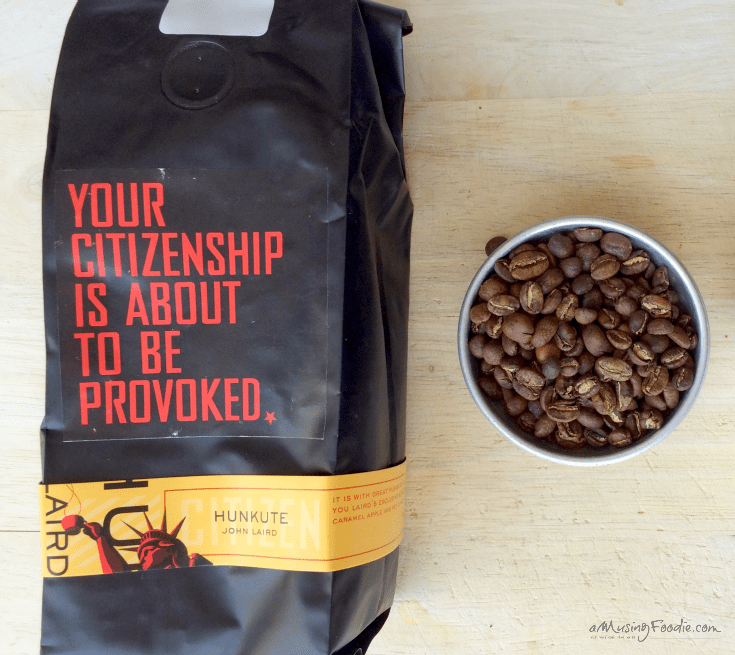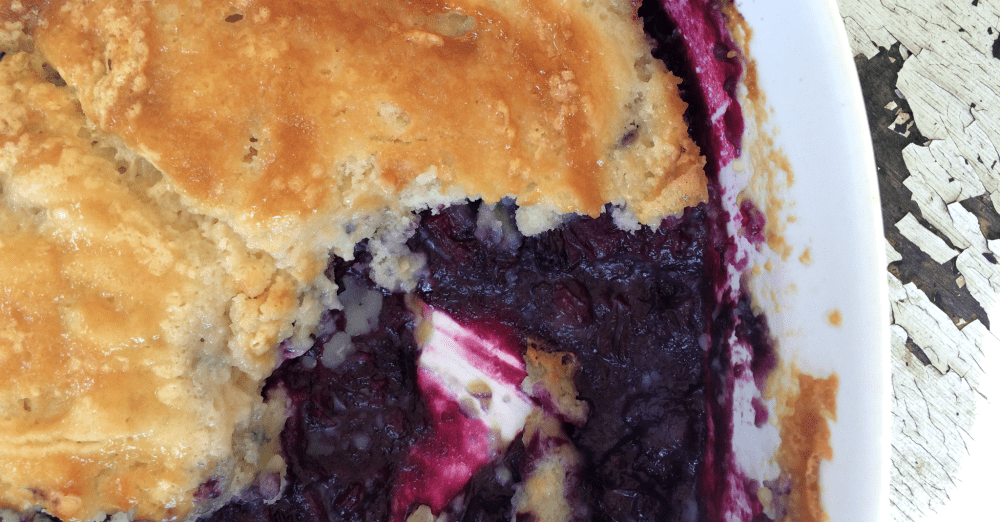Last updated on March 5, 2016 by Liza Hawkins
This post contains affiliate links and sponsored material, but as always, all thoughts and opinions are my own.
Citizen Bean is gift-subscription, coffee-roaster of the month club, which celebrates a different small roaster every month from across the country, selecting award-winning micro-lots.
Two cheers for sustainable coffee!
I’m hooked on coffee. I mean, it’s not a true addiction in that I’ve never suffered from the dreaded “coffee headache” some folks get when they skip a day without the delicious, steamy, caffeinated morning elixir.
More like, I look forward to the first cup or two every morning. Like, a lot.
Just like food, I appreciate when I’m able to find a great tasting coffee that’s also environmentally friendly, sustainable, fair trade, or organic. If it’s easy to get my hands on, that’s icing on the [coffee] cake. What’s even better is finding a combo of all that, so I may have squealed with delight was really excited when I first heard about Citizen Bean.
Coffees With A Conscience
Citizen Bean is a coffee roaster of the month club, dedicated to small batch roasters who are committed to award-winning micro-lots. Members get a pound of coffee per month, including Fair-Trade Certified, organic, and shade grown varieties. Their beans are never flavored—something a lot of lesser quality bean suppliers will do to cover up mediocre beans—and a portion of each month’s sales is donated to charity. In addition, their subscriptions include surprise pairings; often a freshly baked something, accouterments or cupping kit, notes and coffee stats. Very cool, right?
Citizen Bean believes that having a great appreciation for the bean, its storage, and its preparation are of the utmost importance—and key to making a delicious cup of coffee.
And in fact, to be brewed properly, you must ideally use a pour over, French press, or vacuum method of brewing.
Pssst. I looked it up so you don’t have to:
A vacuum coffee maker brews coffee using two chambers where vapor pressure and vacuum produce coffee. This type of coffee maker is also known as vac pot, siphon or syphon coffee maker, and was invented by Loeff of Berlin in the 1830s.
So, there you go.
It’s obvious by my naiveté that I don’t own a vacuum coffee maker. I DO, however, own a French press. (And—in a whisper voice—a regular drip coffee maker.)
A French press absolutely makes one of the very best cups of coffee ever. The only reason I even own anything else is because I rely on my auto-brew setting for the drip maker during the work week. I want that sucker primed and ready to go when I’m up before dawn. And, truth be told, I’m certain I could brew the Citizen Bean varieties in the drip maker and make a fine cup of coffee, it just wouldn’t be as “amazing” of a cup of coffee. But, for the first few tries, I want to give these special (and amazingly fragrant) beans a proper brew.
So, I fired up my tea kettle, brought some water almost to a boil, and got ready to brew myself a cup of Hunkute by way of my small French press. (Yes, a small 12 oz. French press is as cute as it sounds.)
Hunkute Beans
Citizen Bean sent me a bag of roasted beans from Supersonic, made by the Hunkute Co-op in Ethiopia. The beans come from small family plots containing both recently planted trees of improved varietals and traditional old varieties. It’s a beautifully structured Ethiopia Sidama, highlighted by caramel, apple and red current notes. Super, super smooth tasting.
Along with the beans, came explicit instructions for how to store them, how to prepare the beans for brewing, and also how to determine the right quantities of it all. Aren’t they pretty?
I’ll summarize, and you can find out more by clicking here.
How Much Coffee?
You should be using one scoop of coffee for every four ounces of water—and take note that a real cup of coffee (from a coffee connoisseur’s point of view) is apparently a four ounce cup. Not an eight ounce cup. Or a 16 ounce cup. ONLY FOUR OUNCES. Be mindful when the instructions say “one scoop per cup.”
The Grind.
The grind is essential, and should be done just prior to brewing. I know, I know. The planner in me wants to grind it all up, too, and then store it in a sealed container so that it’s ready to go, at all times. Turns out we’re wrong, planners! You should be grinding coffee beans within minutes of using the grounds. As. You. Go.
Also, you want a coarse grind if you’re brewing with a French press. You know the grounds are too fine if they get caught in the French press’ mesh, making it really difficult and annoying to clean. No one wants that, so make sure to keep the grind coarse!
The Water.
It’s simple. Bring cold, filtered water almost to a boil, and then pour it into the French press to steep.
The Bloom.
Once you pour the hot water over the grounds in the French press, they need a little stir, and then a little rest, and then another little stir thirty seconds later. Apparently this makes the grounds very, very excited—and you want excited grounds for a beautiful, flavorful cup of coffee.
The Steep.
You need to let the grounds steep in the water for about three minutes in order to brew an optimal cup of coffee. Wait too long and you risk your coffee going from strong to bitter. Press too soon, and the full flavor doesn’t come through. It’s a balancing act that’s worth the precision.
More About Citizen Bean
Citizen Bean is a sustainable coffee by subscription service, and all of their selections are organic or fair or direct trade. Each month Citizen Bean selects various coffees from different, award-winning cult roasters who’ve been carefully selected as first “best in class” by industry peers, industry reviewing committees and other trade groups.
Follow Citizen Bean on Facebook, Twitter and Instagram!
So, the final verdict? I’m a fan. This coffee was delicious, and I love the Citizen Bean backstory. Like other subscription boxes my friends and I love, this one is sure to add a [caffeinated] smile to your face each month when it arrives at your doorstep.
This post was sponsored by Citizen Bean. All opinions (while sipping my freshly pressed cup of Hunkute) are my own.

